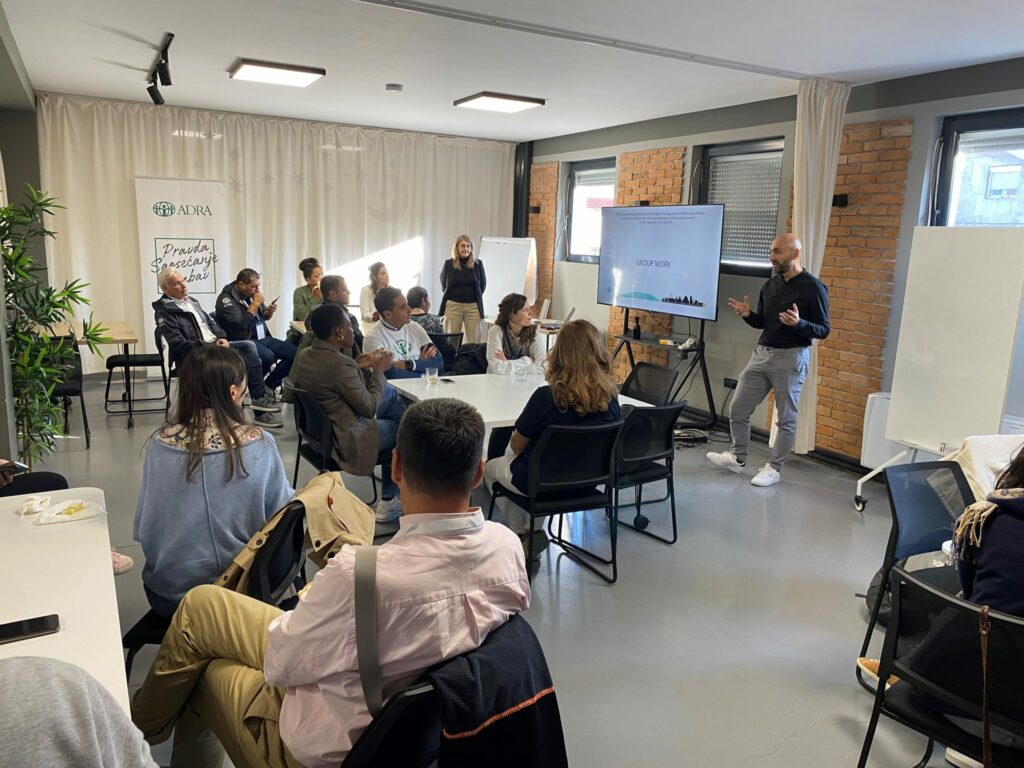ADRA Europe Conference Focuses on Inclusion for Roma and the Homeless
Participants from Europe gathered in Belgrade, Serbia, to strengthen partnerships.
ADRA Europe and Adventist Review
Participants from across Europe recently gathered in Belgrade, Serbia, for an event that looked to strengthen partnerships that restore dignity, belonging, and opportunity. The event was hosted by the Adventist Development and Relief Agency (ADRA) in Europe.
“In Belgrade inclusion was at the core of our work,” ADRA Europe leaders said. Representatives from ADRA offices across Europe joined government partners, faith representatives, and community experts to confront a very important challenge of our time—the growing exclusion of Roma and homeless individuals. “The message was clear: every person deserves respect, dignity, and a chance to thrive.”

Convened by Adventist Development and Relief Agency (ADRA), participants from across Europe recently gathered in Belgrade, Serbia, for an event that sought to strengthen partnerships that restore dignity, belonging, and opportunity. [Photo: ADRA Europe]
The Conference
For three days the ADRA Europe Conference on Roma and homelessnessbrought together participants from more than 10 countries to learn, share, and act. Hosted by ADRA Serbia, the gathering explored the root causes of exclusion—from lack of housing and education to discrimination and trauma—and the practical ways faith-based compassion can build pathways to integration and self-reliance.
Speakers from the European Union (EU), ADRA Europe, Friedensau Adventist University, the Church of Jesus Christ of Latter-day Saints, and local community organizations highlighted the urgent need for sustainable long-term community-based solutions that build on the agency of the people they work with and that have their integration in mind beyond covering immediate needs.
“Social inclusion is not just a policy goal but a shared European value—to live with dignity and opportunity,” Plamena Halacheva, from the EU delegation to Serbia, reminded participants.

One afternoon the conference participants met at ADRA’s social center where group work discussed strengths, weaknesses, opportunities, and threats around ADRA Europe’s projects with those two target groups. [Photo: ADRA Europe]
Throughout the conference, field visits in and around Belgrade offered a glimpse of compassion in tangible action—from Roma families working toward education and livelihoods, to ADRA Serbia’s Drumodom project, which offers integrated support for people experiencing homelessness: from hygiene and sanitation offers (shower, washing of clothes, hygiene items) and health care to psychosocial help and housing support.
Together, participants identified key priorities: stronger partnerships, shared learning, and sustainable funding that help communities lift themselves from poverty, event organizers reported.
The final statement, adopted jointly, affirmed this shared commitment:

The Drumodom bus supports ADRA’s work with homeless individuals in Belgrade, Serbia, offering shower and other essential services that seek to restore human dignity. [Photo: ADRA Europe]
“We believe that everyone deserves respect, dignity, and a chance to thrive,” it read. “As ADRA we are committed in cooperative initiatives aimed that promote the self-reliance of Roma and homeless individuals.” It added, “Together we will share knowledge, best practices, develop joint projects, and source funding to implement community-based interventions that address the root causes of exclusion and poverty. Our collaboration will amplify impact, enhance advocacy, and promote a shared vision of social justice and inclusion.”
ADRA Europe leaders invited the agency’s advocates and donors to join ADRA on this walk. “In every person we serve we see the image of God,” they added. “Justice, compassion, and love call us to build communities where no one is invisible—where every person has a place to belong and a path to thrive.”
The original version of this story was posted on the ADRA Europe news site.